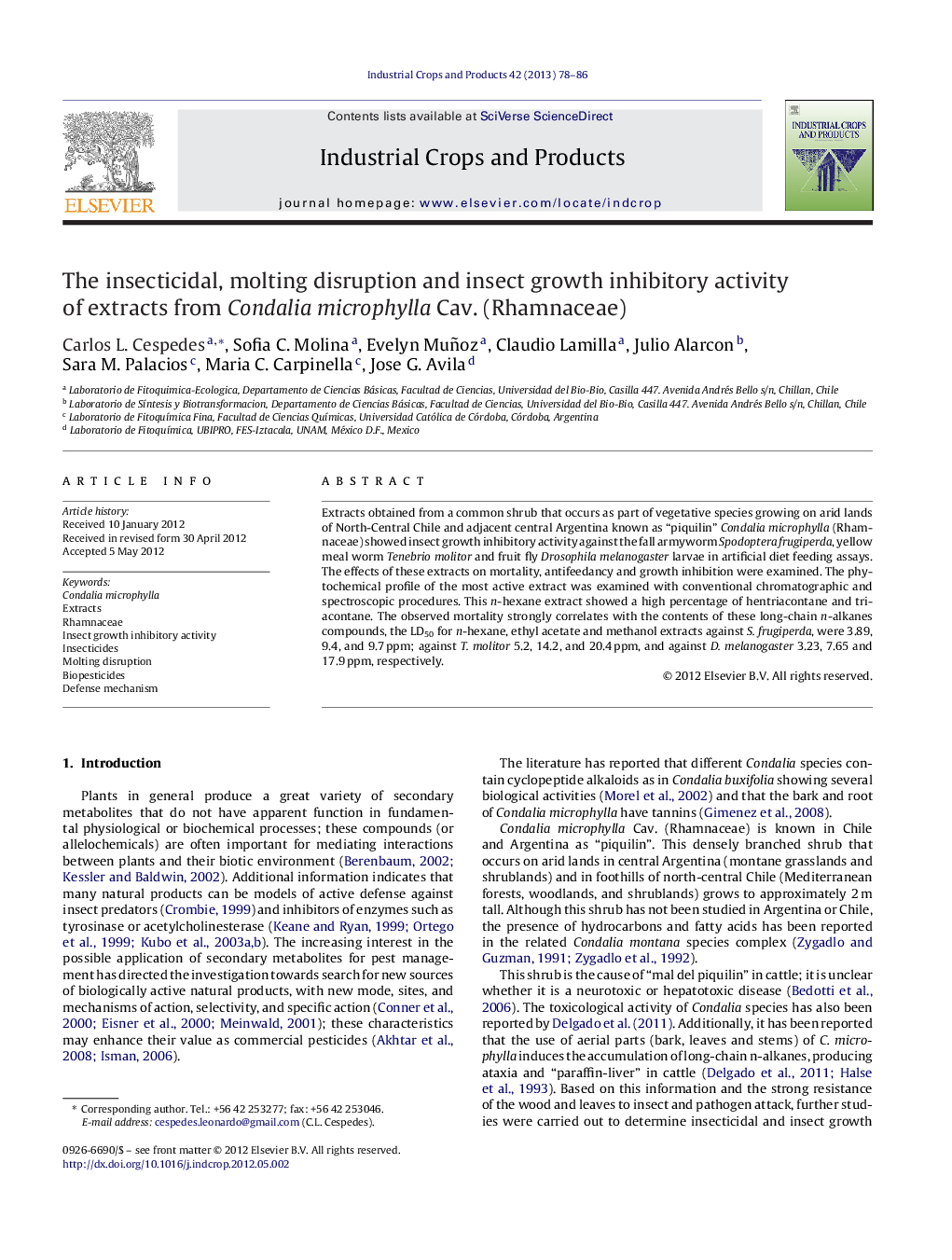| Article ID | Journal | Published Year | Pages | File Type |
|---|---|---|---|---|
| 4513718 | Industrial Crops and Products | 2013 | 9 Pages |
Extracts obtained from a common shrub that occurs as part of vegetative species growing on arid lands of North-Central Chile and adjacent central Argentina known as “piquilin” Condalia microphylla (Rhamnaceae) showed insect growth inhibitory activity against the fall armyworm Spodoptera frugiperda, yellow meal worm Tenebrio molitor and fruit fly Drosophila melanogaster larvae in artificial diet feeding assays. The effects of these extracts on mortality, antifeedancy and growth inhibition were examined. The phytochemical profile of the most active extract was examined with conventional chromatographic and spectroscopic procedures. This n-hexane extract showed a high percentage of hentriacontane and triacontane. The observed mortality strongly correlates with the contents of these long-chain n-alkanes compounds, the LD50 for n-hexane, ethyl acetate and methanol extracts against S. frugiperda, were 3.89, 9.4, and 9.7 ppm; against T. molitor 5.2, 14.2, and 20.4 ppm, and against D. melanogaster 3.23, 7.65 and 17.9 ppm, respectively.
► C. microphylla (Rhamnaceae) known as “piquilin” is unique natural shrub that grows in Chile and Argentina. ► n-Hexane extract showed insect growth inhibitory activity against S. frugiperda, T. molitor and D. melanogaster larvae. ► The mortality strongly correlates with the content of long-chain n-alkanes in the n-hexane extract. ► The LD50 for n-hexane extract against S. frugiperda, T. molitor and D. melanogaster were 3.9, 5.2 and 3.2 ppm, respectively.
